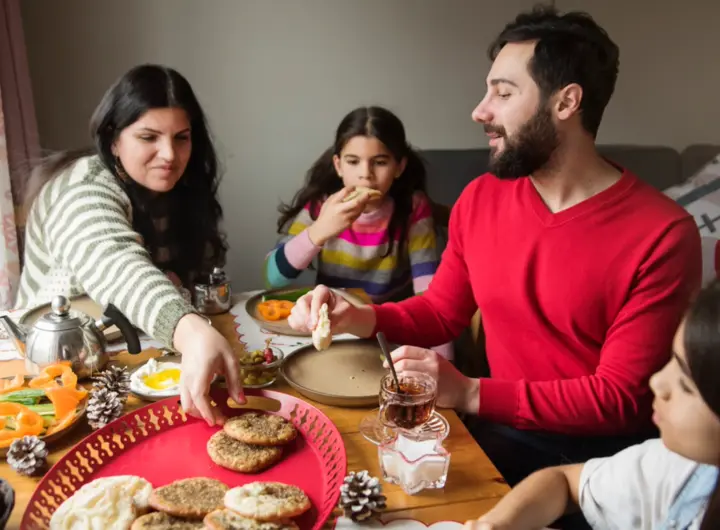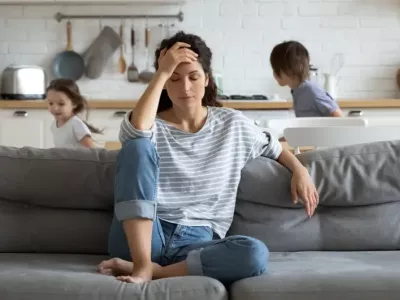A Public Health Approach to Supporting Parents

Families are the cradle of children’s development
Across the globe, children flourish when they live in a loving, supportive family that provides for their needs. Just as our bodies thrive on clean water, good food and exercise, children need parental warmth, flexibility, and structure to grow and learn.
Universal principles of positive parenting
All Triple P programs promote a set of universal principles of positive parenting. Parents are encouraged to:
- Provide a safe and engaging environment
- Foster an environment that encourages and supports children’s learning and growth
- Guide children’s development of self-regulation skills
- Have realistic expectations of themselves and of their children
- Take care of themselves as a parent or caregiver
Across programs, parents are invited to consider how they will put each principle into practice. For example, providing a safe engaging environment will look different across contexts. The parent of a toddler in a high-rise apartment might look at using safety gates and moving hazardous products out of reach; the parent of an older child might focus on helping them navigate the internet and social media. The principle remains the same: parents need to find ways to provide safety for their children.
Health inequalities and adverse childhood experiences
Since the groundbreaking research on adverse childhood experiences a quarter of a century ago, there is clear understanding of the long-term negative effects of early exposure to abuse, neglect and violence. No child is immune from adverse childhood experiences and some children are exposed to a disproportionate number that leads to a cascade of negative effects that are first evident in childhood and persist into adulthood.
The deleterious consequences of adverse childhood experiences are pervasive and can persist across generations. Parents who have experienced a high number of adverse childhood experiences may benefit from additional support to put into practice the Triple P principles of positive parenting. For example, a parent who has experienced gender-based violence may have a greater challenge in providing a safe environment and may be out of practice in looking after their own needs.
Early relational health
Fortunately, there is an antidote to adverse childhood experiences. Parents can learn new ways of interacting with their children, so they can break the cycle of intergenerational transmission of risk. Universally, we do better when we are in relationships in which we are appreciated and cherished. Clear expectations and helpful models of calm communication enable us to take on new challenges1.
Proportionate universality2
All parents need help from time to time. Some disadvantaged parents may require more intense support. In a system of proportionate universality, the principles that guide the service are universal, but the approach is flexible enough that it can be scaled to provide the intensity of services families need.
A pyramid of intensity
Within the Triple P system of support, the same messages are proposed and what changes is the intensity of service delivery.
- Level 1 programs are communication strategies designed to reach all parents. The key message, delivered via websites and social media is that everyone needs a little help now and again in the important role of caring for the next generation and promoting their resilience.
- Level 2 programs are light touch interventions, usually offered to a group of parents. Parents attending a light-touch service like a seminar might find it helpful for different reasons. Some might find it reassuring to know they are on the right track in what they are already doing; others might get new ideas they’d like to try with their families; another group might find the new ideas interesting but realize that they would benefit from additional services to meet their goals.
- Level 3 programs focus on a specific parenting issue. They involve an initial consultation with a brief assessment phase, then parents are coached to develop a plan to address the problem. A follow-up session allows parents to celebrate their successes and tweak their plan as needed to get the outcomes they are looking for. Initially developed to address less serious problems, level 3 programs can also be used to engage parents with complex needs who are unable to engage in more intense services.
- Level 4 programs provide parents with a curriculum that enable them to keep track of their child’s behaviour, set goals for change, and implement new strategies. These programs can be accessed one to one, in a group format, on-line, or in a compressed workshop format.
- Level 5 programs focus on issues (such as depression, anger, couple conflict, attributions about the child’s behaviour) that prevent parents from putting into practice what they have learned in a level 4 program.
Reducing stigma in accessing support
All parents are vulnerable to criticism and may be prone to self-doubt at times. For disadvantaged parents the way parenting support is offered may inadvertently contribute to feelings of shame and worthlessness.
Triple P principles apply to all parents. Programs target specific age groups (Triple P for baby, 1-12, teen). Across a range of Triple P programs, the same parenting strategies are offered. Additional strategies are proposed to meet the needs of children with disabilities (stepping stones Triple P), children who are dealing with anxiety (Fear-Less Triple P) or who are facing additional stressors such as disasters (Disaster Recovery Triple P). · by promoting the same strategies at different intensities, the stigma of needing help is reduced. All parents are encouraged to use the strategies, it doesn’t mean there’s a problem.
The basic idea is that we all need help from time to time, and some families need more than others. All children can thrive when parents use the strategies Triple P teaches–these are healthy lifestyle choices, not treatments for problems.
The skills that are promoted in Triple P programs are life skills that enable parents to help their children develop and become resilient.
Moving beyond silos of care
The Triple P system of parenting support is based on a multidisciplinary workforce. It is possible to imagine a level 1 communications strategy delivered by a public health unit, level 2 seminars offered through schools, level 3 and 4 may be offered by diverse professionals who already have a connection to parents, and level 5 programs offered by mental health services, child protection services, or supports to the family court system. By offering a common language and principles, parents receive consistent message as they access different types of services.
References
- Williams C. Robin. (2023, April 3). From ACEs to early relational health: Implications for clinical practice. Canadian Paediatric Society. https://cps.ca/en/documents/position/from-aces-to-early-relational-health
- Human Early Learning Partnership. (2015). Proportionate Universality: Policy Brief, [Online], 4 p. https://earlylearning.ubc.ca/app/uploads/2022/06/proportionate_universality_2015Nov.pdf

